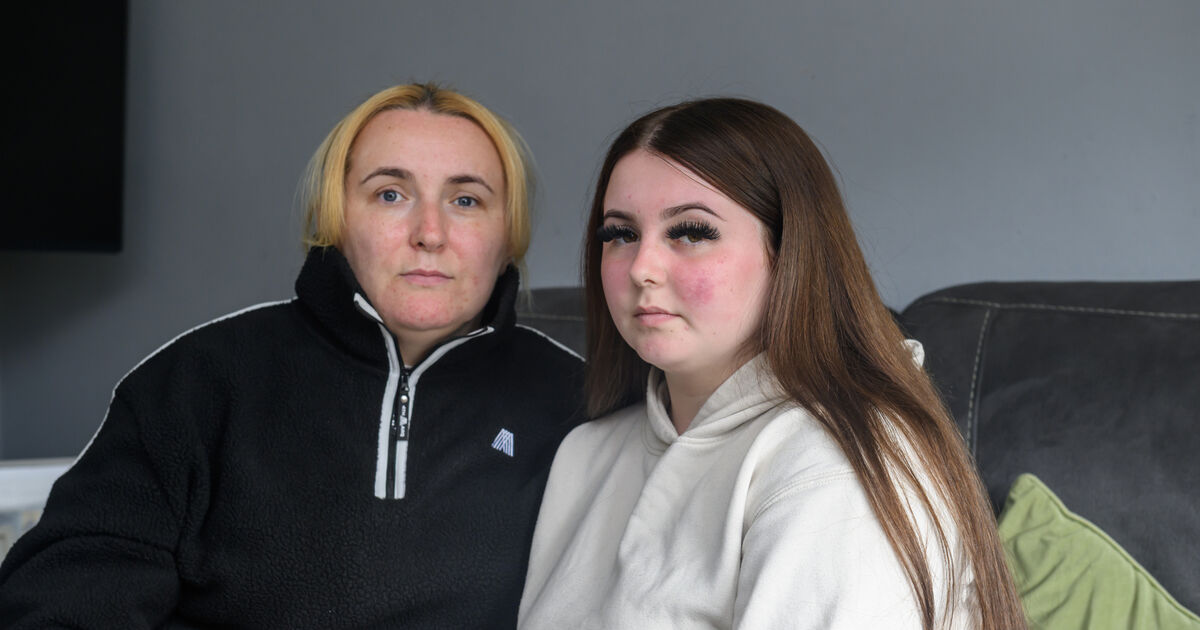The mother of a Kerry teenager diagnosed with endometriosis in Romania after treatment at four hospitals in Munster and Spain over three years has called for urgent expansion of services.
The condition is estimated to affect a tenth of girls and women globally. It is known as the missed disease as worldwide it can take up to 10 years to diagnose. There is no cure or prevention but symptoms can be eased with treatment.
Lorraine Fitzgerald said: “Endometriosis is being spoken about a lot recently in Ireland, but that talk needs to be followed with action.
“The day we went to Romania my daughter was one of three Irish women that day, just that day, in the clinic.”
Kaysey O’Connor, aged 16, has struggled with stomach cramps, vomiting, back pain and heavy blood loss during periods since she was 13. She has been diagnosed with ovarian cysts, kidney stones, ovulation pain and more after MRI scans, ultrasounds and x-rays.
At one point “a female doctor had told her it was all in her head”, Lorraine said.
She was not eating, not sleeping and I was worried about her mental health. She was not going to school.
She was treated first at University Hospital Kerry. They later drove from Killarney to Cork University Hospital and Cork University Maternity Hospital. By late 2023 Lorraine was concerned about endometriosis and asking about it as other conditions were ruled out.
This is a familiar situation globally.
An editorial on endometriosis in UK medical journal The Lancet last October warned: “Diagnosis is essential to receiving treatment but receiving it takes too long.”
Endometriosis is when tissue similar to the lining of the womb starts to grow in other places. It can be in the ovaries, the lining of the stomach and fallopian tubes and more.
In December 2023, Kaysey was operated on for an inflamed appendix at CUH. Lorraine was told endometriosis was not seen.
“The pain definitely wasn’t as bad after,” Lorraine said. “She wasn’t vomiting anymore so I do believe her appendix was part of the problem at the time.”
Kaysey was also advised in CUMH to start the contraceptive pill. This is often prescribed for menstrual problems. It can also be part of endometriosis treatment.
Then with support from their GP who Lorraine praised, she applied for the EU Treatment Abroad Scheme. The HSE reimburse approved medical costs, but not travel or accommodation.
The Fitzgeralds funded it with a credit union loan. Lorraine, a school SNA, turned down work to travel while her husband juggled work with caring for their youngest daughter.
However, the doctor they saw in Spain said Kaysey was too young to have endometriosis. They applied again and in June went to a specialist clinic in Romania.
Here doctors, after an MRI, identified endometriosis in two places. They prescribed a new painkiller but cautioned definitive diagnosis requires laparoscopy surgery.
“It’s madness that we had to leave the country twice to try and get a diagnosis,” Lorraine said.
She described Dáil discussions this week as “very disheartening”.
The HSE could not comment on Kaysey’s case but said care of teenagers who may have endometriosis starts with GPs.
This can include painkillers and the pill. A spokeswoman said: “This empirical approach is recommended as first-line treatment regardless of age.”
Girls can be referred to a general gynaecological service or a paediatric and adolescent gynaecology service under Children’s Health Ireland. She also said laparoscopy offers definitive diagnosis and girls should be counselled about risks first.
After-care can be given by any HSE service for girls or women who have healthcare abroad, she confirmed.
New clinical guidelines were published in June to link in with a new national endometriosis service currently rolling out.
These will support a National Framework making a pathway of care. However, the framework was expected last year, and advocates have raised serious concerns about delays.
The HSE said discussions with GPs – through the Irish Medical Organisation – are ongoing. It is understood this started just weeks ago as the final stage in the process.
The spokeswoman said “a key priority” is raising awareness of symptoms and promoting the guidelines to healthcare workers. A public awareness campaign and new patient information resources are expected shortly.
“Endometriosis is a difficult condition to diagnose and treat because of the variation of presentations, impacting the physical and mental wellbeing of patients at varying levels,” she said.
“The time to diagnose endometriosis also varies by patient due to its varying and often ambiguous symptoms.”
CUH, CUMH and UHK hospitals are part of HSE Southwest. They said newly referred patients are seen at the new CUMH Supra-regional Endometriosis Centre within 12 weeks. They acknowledged staffing vacancies, saying recruitment is complex because of the specialised skill set needed.
“In the interim, patient care plans are being prioritised and managed by the extended CUMH inter-disciplinary team to ensure continuity of care and to minimise delays,” a spokeswoman said.

